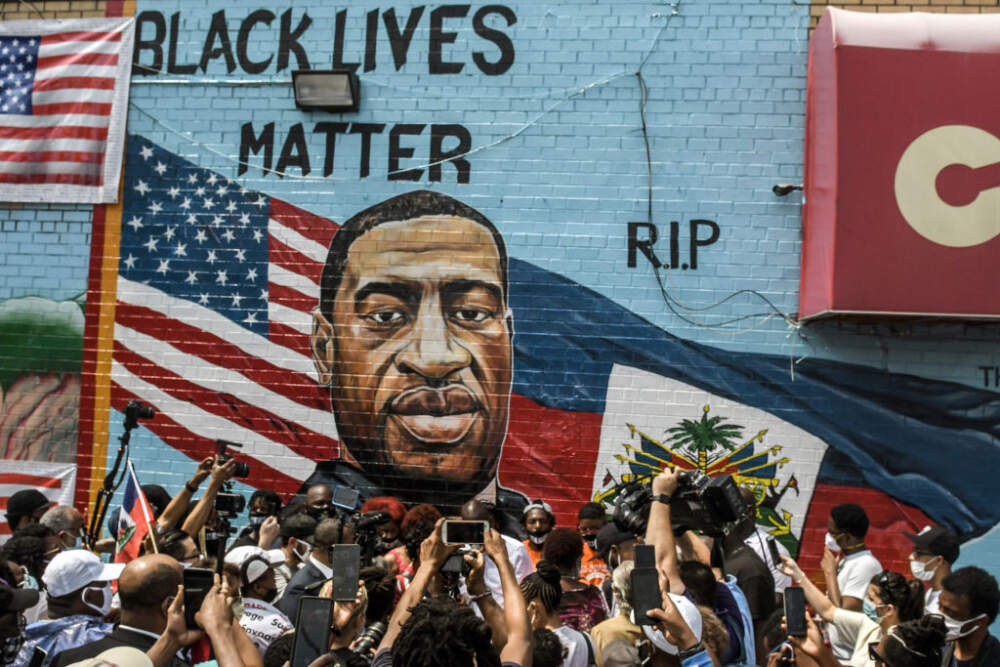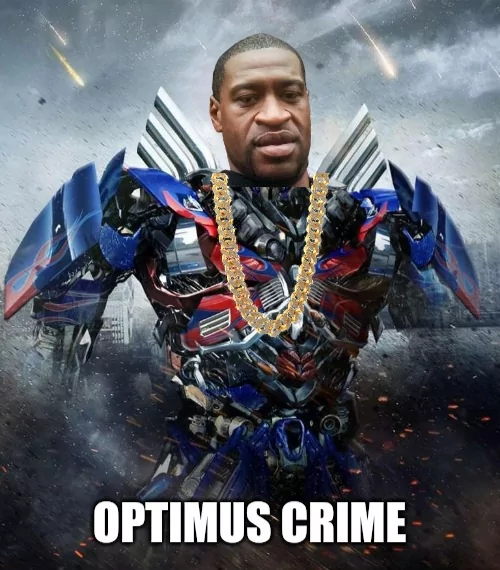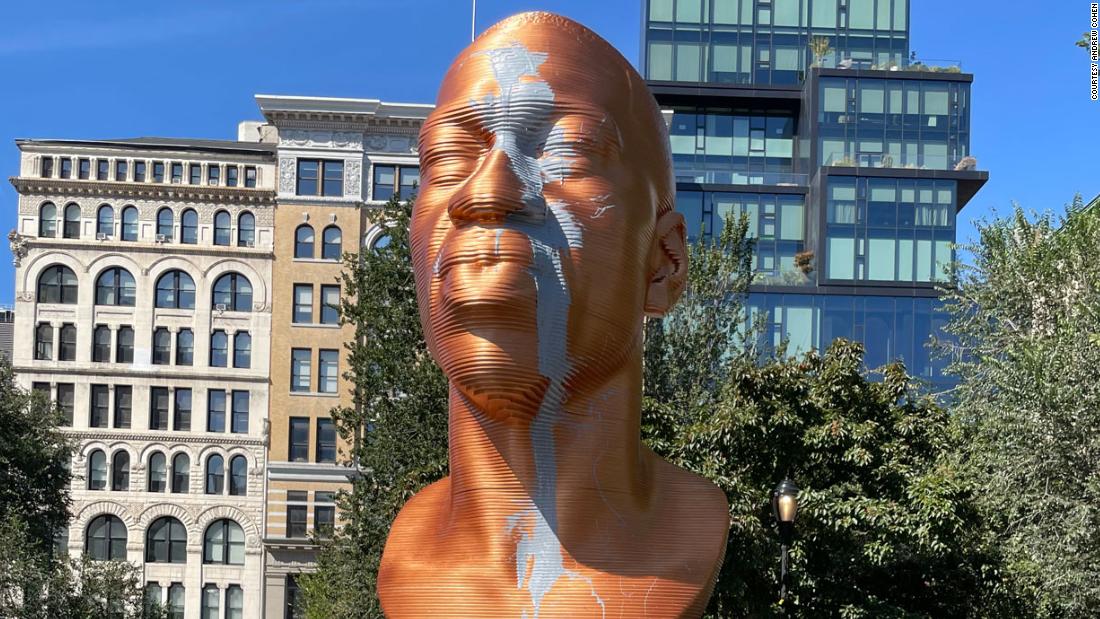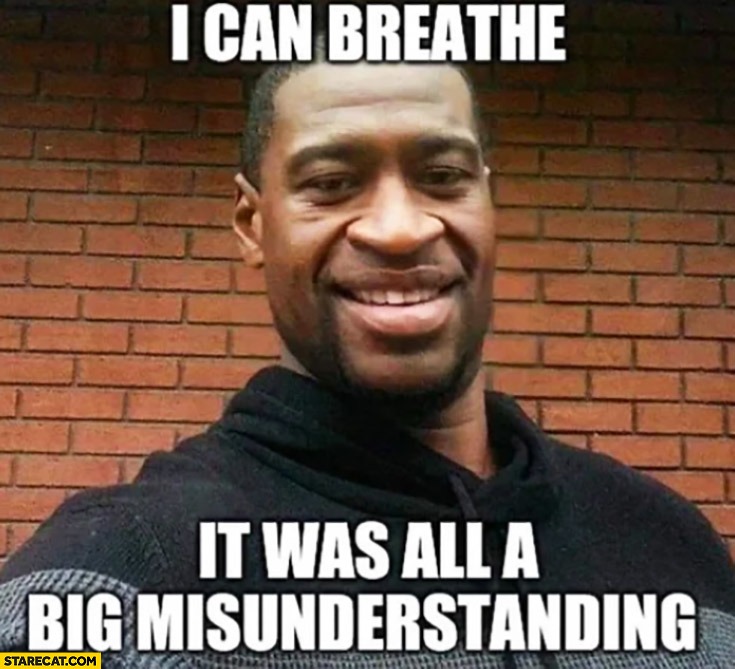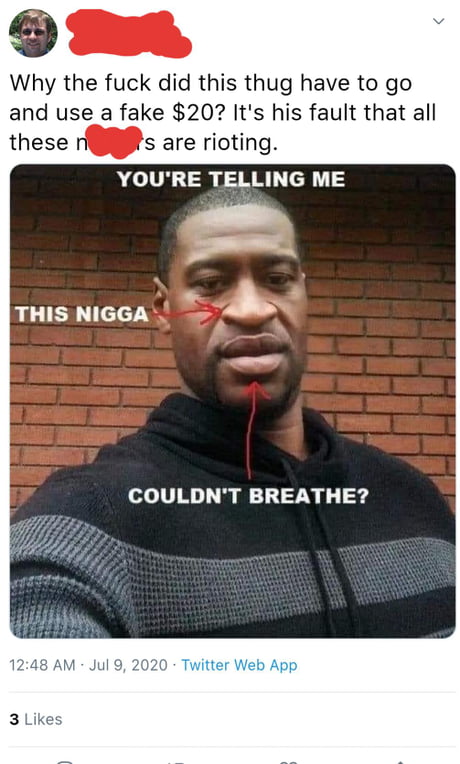Troll Kingdom
You are using an out of date browser. It may not display this or other websites correctly.
You should upgrade or use an alternative browser.
You should upgrade or use an alternative browser.
George Floyd murdered 3 years ago this week
- Thread starter C-40
- Start date
More options
Who Replied?Related Links
**RIP George Floyd [10/14/1973 - 5/25/2020
By: blackfoot NAP - May 25, 2022
BLM: Update on George Floyd
By: CeeJay - April 2, 2021
RIP George Floyd
By: CeeJay - May 31, 2020
**RIP George Floyd [10/14/1973 - 5/25/2020
By: blackfoot NAP - May 25, 2022
BLM: Update on George Floyd
By: CeeJay - April 2, 2021
RIP George Floyd
By: CeeJay - May 31, 2020
He prosecuted George Floyd’s killer — and he’s still searching for answers
Minnesota Attorney General Keith Ellison is consumed by a quest to examine how policing reached a crisis point. Ellison led the prosecution of Derek Chauvin, the disgraced Minneapolis police officer who murdered George Floyd three years ago. The prosecutor came away from the trial with reams of notes and a hunger to understand what led to Floyd’s death — and how to prevent it from happening again. “It seems like no Minnesotan and no American can deny that there is a real problem when it comes to policing in some communities, especially concerning Black people,” Ellison, who is Black, said in an interview with POLITICO this month. “There was a time when I think we could say, ‘Well, that happened once.’ Or maybe, ‘There are two sides to a story.' But once you’ve seen what happened to George Floyd, you can’t say it’s not a serious problem.”
Click Here For Full Story
3 years after George Floyd's murder, cop culture still hasn't changed
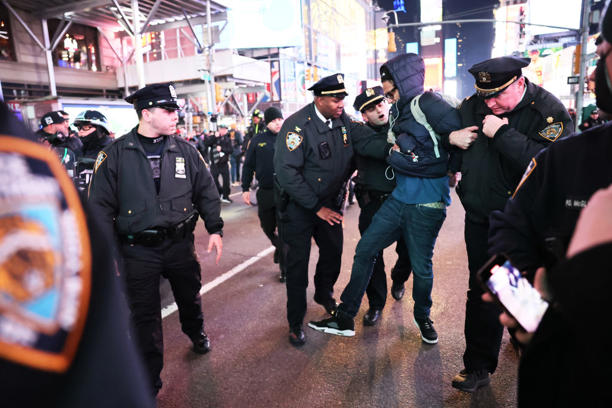
NYPD officers arrest a demonstrator as people protest the death of Tyre Nichols on January 27, 2023 in New York City. The release of a video depicting the fatal beating of Nichols, a 29-year-old Black man, sparked protests in NYC

NYPD officers arrest a demonstrator as people protest the death of Tyre Nichols on January 27, 2023 in New York City. The release of a video depicting the fatal beating of Nichols, a 29-year-old Black man, sparked protests in NYC
‘It looked like Chauvin would get away with it’: Minnesota’s top attorney on how he won justice for George Floyd’s family
Keith Ellison secured a rare conviction of a police officer for an on-duty death but saw wider reform stall.
When he recalls seeing Derek Chauvin in court for the first time, Keith Ellison references “the banality of evil”, a phrase coined by writer and philosopher Hannah Arendt when covering the trial of Adolf Eichmann, one of the architects of the Holocaust. Chauvin, a white former police officer, was found guilty of murdering George Floyd, a 46-year-old African American man in Minneapolis, after kneeling on his neck for nine minutes. He was sentenced to 22 and a half years in prison and has appealed his conviction. The book begins on the day three years ago last week when Ellison, attorney general of Minnesota, was woken by his phone at 4.45am by an urgent message. He watched a mobile phone video that showed Floyd, trapped under Chauvin’s knee, shouting “Mamma! Mamma! I’m through!” and, repeatedly, “I can’t breathe!” Ellison could not believe how long the torment continued.
Click Here For Full Story
Keith Ellison secured a rare conviction of a police officer for an on-duty death but saw wider reform stall.
When he recalls seeing Derek Chauvin in court for the first time, Keith Ellison references “the banality of evil”, a phrase coined by writer and philosopher Hannah Arendt when covering the trial of Adolf Eichmann, one of the architects of the Holocaust. Chauvin, a white former police officer, was found guilty of murdering George Floyd, a 46-year-old African American man in Minneapolis, after kneeling on his neck for nine minutes. He was sentenced to 22 and a half years in prison and has appealed his conviction. The book begins on the day three years ago last week when Ellison, attorney general of Minnesota, was woken by his phone at 4.45am by an urgent message. He watched a mobile phone video that showed Floyd, trapped under Chauvin’s knee, shouting “Mamma! Mamma! I’m through!” and, repeatedly, “I can’t breathe!” Ellison could not believe how long the torment continued.
Click Here For Full Story
Three years after George Floyd: hopes dashed, progress mixed

The area outside of Unity Foods in Minneapolis, Minnesota has become a memorial for George Floyd, whose death under the knee of a white police officer on May 25, 2020, triggered global protests about police reform and racial Justice
It's been nearly three years since a white police officer put his knee on George Floyd's neck, asphyxiating the African-American man and sparking mass protests against racism and police violence. As the anniversary approaches of the May 25, 2020 killing, which was captured on video and went viral around the world, AFP came back to ask his aunt, a protester, and one of the leaders of an organization dedicated to his memory to describe what has changed, and what hasn't. Is there more work to do? Will there be more police killings? As the anniversary approaches of the May 25, 2020 killing, which was captured on video and went viral around the world.
Click Here For Full Story
**RIP George Floyd | 10/14/1973 - 5/25/2020**
Synaesthesia
New member
Related Links
3 years after George Floyd: hopes dashed, progress mixed
By: CeeJay - May 23, 2023
**RIP George Floyd [10/14/1973 - 5/25/2020]**
By:Blackfoot NAP - May 25, 2022
RIP George Floyd
By: CeeJay - May 31, 3020
BLM: Update on George Floyd
By: CeeJay - April 2, 2021
3 years after George Floyd: hopes dashed, progress mixed
By: CeeJay - May 23, 2023
**RIP George Floyd [10/14/1973 - 5/25/2020]**
By:Blackfoot NAP - May 25, 2022
RIP George Floyd
By: CeeJay - May 31, 3020
BLM: Update on George Floyd
By: CeeJay - April 2, 2021
How George Floyd Died, and What Happened Next
The death of George Floyd, a 46-year-old Black man, in May 2020 drew widespread outrage after a video circulated online showing Officer Derek Chauvin holding his knee on Mr. Floyd’s neck on a Minneapolis street corner as he gasped for breath. Mr. Floyd’s death spurred nationwide protests against police brutality and a reckoning over everything from public monuments to sports team names. Mr. Chauvin and the three other officers involved in Mr. Floyd’s death — Thomas Lane, Tou Thao and J. Alexander Kueng — were fired and charged with a variety of crimes. Mr. Chauvin was convicted of murder in April 2021 and was sentenced to 22 and a half years in prison. The other three officers were each sentenced to serve several years in prison.
Click Here For Full Story
Related Links
George murdered 3 years ago this week
By: CeeJay - May 24, 2023
**RIP George Floyd [10/14/1973 - 5/25/2020
By: blackfoot NAP - May 25, 2022
BLM: Update on George Floyd
By: CeeJay - April 2, 2021
RIP George Floyd
By: CeeJay - May 31, 2020
George murdered 3 years ago this week
By: CeeJay - May 24, 2023
**RIP George Floyd [10/14/1973 - 5/25/2020
By: blackfoot NAP - May 25, 2022
BLM: Update on George Floyd
By: CeeJay - April 2, 2021
RIP George Floyd
By: CeeJay - May 31, 2020
Prosecutors urge Minnesota Supreme Court to reject appeal by ex-officer in George Floyd murder
Chauvin's attorney asked the state's highest court last month to hear the case after the Minnesota Court of Appeals rejected his arguments that he had been denied a fair trial. A three-judge panel in April affirmed his conviction for second-degree murder and his 22 1/2-year sentence. In a response filed Tuesday, the attorney general's office asked the Supreme Court to let that ruling stand.
Chauvin's attorney asked the state's highest court last month to hear the case after the Minnesota Court of Appeals rejected his arguments that he had been denied a fair trial. A three-judge panel in April affirmed his conviction for second-degree murder and his 22 1/2-year sentence. In a response filed Tuesday, the attorney general's office asked the Supreme Court to let that ruling stand.

Former Minneapolis Police Officer Derek Chauvin, center, is taken into custody as his attorney, Eric Nelson, left, looks on after the verdicts were read at Chauvin's trial for the 2020 death of George Floyd, at the Hennepin County Courthouse in Minneapolis, April 20, 2021. The third anniversary of Floyd’s murder is Thursday, May 25, 2023.
George Floyd’s murder ushered in big talk of equity and justice. 3 years later, this work is still a matter of life and death
Last week marked three years since George Floyd’s murder. In the weeks and months that followed the tragedy of that day, it seemed as though America had finally woken up, finally seen the way that racism pervades every system in our country. The anguish and the rage of people who had marched for Mike Brown and Freddie Gray and Tamir Rice, and so many others, was finally being heard in boardrooms and state houses, in newsrooms and courthouses. The movement for Black lives prompted a racist backlash against “wokeness.” Today, it’s a movement led by people like Florida Gov. Ron DeSantis and picked up by right wing politicians and commentators across the country, which seeks to ban books that discuss racism, whitewash American history and end affirmative action. To hear these politicians speak is to see and hear echoes of George Wallace blocking the schoolhouse door in Alabama.
Click Here For Full Story
